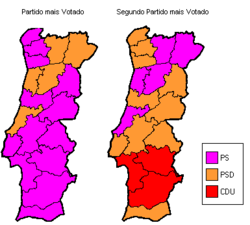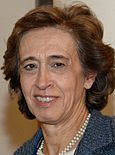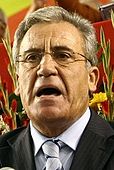Portuguese legislative election, 2009
|
|
|||||||||||||||||||||||||||||||||||||||||||||||||||||||||||||||||||||||||||||||||||||||||
|---|---|---|---|---|---|---|---|---|---|---|---|---|---|---|---|---|---|---|---|---|---|---|---|---|---|---|---|---|---|---|---|---|---|---|---|---|---|---|---|---|---|---|---|---|---|---|---|---|---|---|---|---|---|---|---|---|---|---|---|---|---|---|---|---|---|---|---|---|---|---|---|---|---|---|---|---|---|---|---|---|---|---|---|---|---|---|---|---|---|
|
|||||||||||||||||||||||||||||||||||||||||||||||||||||||||||||||||||||||||||||||||||||||||
|
230 seats to the Portuguese Assembly 116 seats needed for a majority |
|||||||||||||||||||||||||||||||||||||||||||||||||||||||||||||||||||||||||||||||||||||||||
| Registered | 9,519,921 |
||||||||||||||||||||||||||||||||||||||||||||||||||||||||||||||||||||||||||||||||||||||||
| Turnout | 5,681,258 (59.7%) |
||||||||||||||||||||||||||||||||||||||||||||||||||||||||||||||||||||||||||||||||||||||||
|
|||||||||||||||||||||||||||||||||||||||||||||||||||||||||||||||||||||||||||||||||||||||||

The first and the second most voted parties in each district
(Azores and Madeira are not shown) |
|||||||||||||||||||||||||||||||||||||||||||||||||||||||||||||||||||||||||||||||||||||||||
|
|||||||||||||||||||||||||||||||||||||||||||||||||||||||||||||||||||||||||||||||||||||||||
Legislative elections in Portugal were held on 27 September 2009 to renew all 230 members of the Assembly of the Republic. The Socialist Party, led by incumbent Prime Minister José Sócrates, won the largest number of seats, but didn't repeat the overall majority they gained in 2005.
The Socialist Party of Prime Minister José Sócrates came in first despite losing 9% of the vote and 24 seats.
In these elections there were approximately 9.5 million Portuguese at home and abroad called to determine the 230 seats in the Assembleia da República and 18th constitutional government in Portugal after 1976. The Socialists won the election with a clear lead over the conservative Social Democrats, with big gains for the People's Party and for the Left Bloc.
The election took place during the regular end of the previous four-year legislative period. From 2005 to 2009 ruled by the Socialist Party (PS), led by José Sócrates, with an absolute majority. The opinion polls at the beginning of the official election campaign on 12 September 2009, showed a too close to call race between the Socialists and the conservative Social Democrats, but just days before the election the Socialists increased their lead over the Social Democrats. A total of 13 parties and two coalitions competed in this election.
Focus of the campaign were the impact of global economic and financial crisis and the construction of new infrastructure projects, including the high-speed rail link Lisbon-Madrid and Lisbon-Porto-Vigo and the new Lisbon airport.
Neither of the two major parties won an absolute majority in the Assembly of the Republic, so, the future prime minister must form a coalition, or at least rely on other parties to govern. In this case, José Sócrates is in a better position than Manuela Ferreira Leite, since the Portuguese left won by 54.23% of the vote and 128 seats, against 39.54% and 102 deputies to the right.
...
Wikipedia





